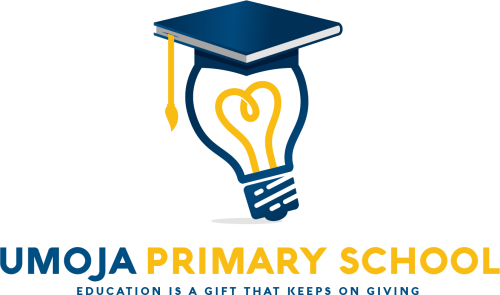
Curriculum
Our Vision
The teachers use strategies and skills that are child-centred to impart the content of subjects to students. The teachers follow the guidelines of the curriculum, but the needs and abilities of the students are always the starting point of educational planning. Each student has their targets when it comes to the areas of development, i.e. Social, Emotional, Physical and Creative development.

Curriculum
Our curriculum is broad and balanced to provide a holistic approach to each student that is physical, mental, emotional, and social. Its designed to enable students acquire functional & permanent literacy, numeracy and communication skills. This helps to stimulate the child to acquire knowledge and develop individual skills to instill the values of living and working cooperatively with other people and caring for others in the community.
Umoja Primary School produces high achieving and confident students. We emphasize academic excellence, and throughout the year, students are assessed through class termly tests and examinations, which are both internal and external. Tests and assessments are reported to parents and feedback is equally given to students to help them improve. To our students on the Uganda National curriculum, we add subjects such as French and I.C.T. from Primary One although they are not included on the national curriculum.
Extra-curricular activities are organized in the form of afternoon clubs and outings.
Lower primary (P1-P3) follows a Thematic Curriculum. Content is arranged around themes that are familiar to the learners.
Primary School (P4-P7) curriculum is designed to enable learners to develop competencies and life skills for lifelong learning.
Learning Areas:
- Mathematics
- Literacy I
- Literacy II
- English
- Oral Literature
- Creative Performing Arts (CPA):– Music,
- Drama, Art and Craft.
- Physical Education
- Religious Education
- News
- Free activity
- French
- ICT
Our Subjects


Assessment Policy
Assessment is an integral part of the teaching and learning experience that allows us to provide crucial feedback to students in order to make more effective progress. Moreover, monitoring our students’ progress ensures that every pupil receives the support and encouragement that he or she needs.
Assessment can provide perspective and an evidence-based reference point through which educational objectives can be set. Additionally, assessment is useful to inform class planning, assessment of school resources, and even the training needs for our staff. We emphasize assessment procedures that are free from bias, stereotyping, and generalization with respect to gender, class, and race.
We have 3 main forms of assessment, and these are: I) formative assessment where teachers evaluate pupils’ on a day to day basis. II) In-school summative assessment which enables the school to evaluate how much a pupil has learnt at the end of a teaching period. III) External summative assessment in the forms of a)British Curriculum test i.e Checkpoints and progression tests. As well b) National examinations for the Ugandan national Curriculum.